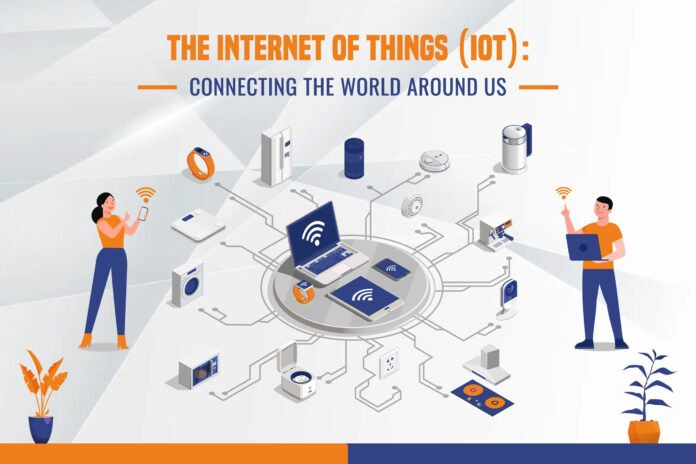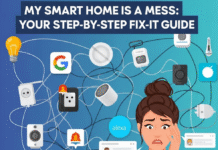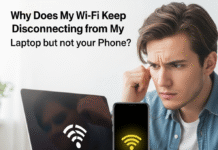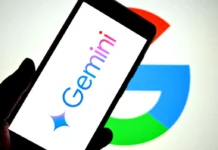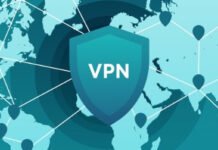The Internet of Things (IoT): Connecting the World Around Us
Introduction
In this ever-evolving digital age, the concept of the Internet of Things (IoT) has gained significant momentum. The IoT refers to the network of interconnected devices that have the ability to communicate and exchange data with each other. It has revolutionized the way we live, work, and interact with the world around us. From smart homes to industrial automation, the IoT has paved the way for a more connected and efficient future. In this article, we will explore the vast landscape of the IoT and how it is connecting the world around us.
What is the Internet of Things (IoT)?
The Internet of Things (IoT) is a system of interrelated devices, objects, or “things” that are embedded with sensors, software, and network connectivity, enabling them to collect and exchange data. These devices can range from everyday objects like household appliances and wearables to complex industrial machinery and infrastructure. The IoT allows these devices to communicate with each other and with humans, creating a seamless and intelligent network.
How does the Internet of Things (IoT) work?
The Internet of Things (IoT) works through a network of connected devices that communicate with each other using various technologies such as Wi-Fi, Bluetooth, or cellular networks. These devices collect data through sensors or other means, process it locally or in the cloud, and then take appropriate actions based on the received information. The data collected by these devices can be analyzed to gain valuable insights and enable informed decision-making.
Applications of the Internet of Things (IoT)
The Internet of Things (IoT) has found applications in various industries and sectors, transforming the way we live and work. Here are some key areas where the IoT is making a significant impact:
1. Smart Homes and Home Automation
The IoT has revolutionized the concept of smart homes, enabling homeowners to control and monitor various aspects of their homes remotely. From smart thermostats and lighting systems to security cameras and voice assistants, IoT devices have made our homes more convenient, energy-efficient, and secure.
2. Healthcare and Wearable Devices
In the field of healthcare, the IoT has paved the way for remote patient monitoring, personalized medicine, and improved healthcare outcomes. Wearable devices equipped with sensors can collect vital health data and transmit it to healthcare professionals in real-time, enabling proactive and timely interventions.
3. Industrial Automation and Smart Manufacturing
The IoT has transformed the industrial landscape by enabling automation, predictive maintenance, and enhanced productivity. Connected sensors and devices can monitor machinery, collect performance data, and optimize operations, leading to cost savings and increased efficiency.
4. Transportation and Smart Cities
In the realm of transportation, the IoT is driving innovations such as connected cars, intelligent traffic management, and efficient logistics. By integrating vehicles, traffic signals, and infrastructure, the IoT is improving road safety, reducing congestion, and creating sustainable transportation systems.
5. Agriculture and Smart Farming
The IoT has the potential to revolutionize agriculture by enabling precision farming, efficient resource management, and crop monitoring. Smart sensors and actuators can collect data on soil moisture, temperature, and other parameters, allowing farmers to optimize irrigation, reduce waste, and increase crop yields.
The Impact of the Internet of Things (IoT) on Daily Life
The Internet of Things (IoT) has become an integral part of our daily lives, transforming the way we interact with technology and the world around us. From the moment we wake up until we go to bed, the IoT has a significant impact on various aspects of our routines:
- Smart Alarm Clocks: IoT-enabled alarm clocks can analyze our sleep patterns and wake us up at the optimal time, ensuring a refreshed start to the day.
- Smart Appliances: IoT-connected appliances, such as refrigerators and washing machines, can notify us when supplies are running low or when a cycle is complete.
- Fitness Trackers: Wearable fitness trackers monitor our activity levels, heart rate, and sleep quality, providing insights to help us lead a healthier lifestyle.
- Voice Assistants: Virtual voice assistants like Amazon Alexa or Google Assistant use the IoT to respond to our commands, control smart devices, and provide useful information.
- Smart Lighting: IoT-enabled lighting systems can adjust brightness, color, and ambiance based on our preferences or time of day, creating a more comfortable environment.
- Home Security Systems: IoT-connected security systems provide real-time alerts and remote monitoring, enhancing the safety and security of our homes.
FAQs about the Internet of Things (IoT)
Q: What are the security challenges associated with the Internet of Things (IoT)?
A: The IoT presents unique security challenges due to the vast number of interconnected devices and the diversity of their capabilities. Ensuring data privacy, protecting against cyber threats, and addressing vulnerabilities in IoT devices are critical concerns that need to be addressed.
Q: How is the Internet of Things (IoT) contributing to sustainability?
A: The IoT is playing a crucial role in promoting sustainability by optimizing resource utilization, reducing waste, and enabling efficient energy management. Smart grids, smart buildings, and smart transportation systems are some examples of IoT applications contributing to sustainability.
Q: What is the future of the Internet of Things (IoT)?
A: The future of the IoT holds immense possibilities. With advancements in artificial intelligence, 5G connectivity, and edge computing, the IoT is expected to continue expanding its reach and impact across industries, creating smarter and more connected environments.
Q: Are there any ethical considerations surrounding the Internet of Things (IoT)?
A: Yes, the IoT raises ethical concerns related to data privacy, consent, and security. As more devices collect and transmit personal data, it becomes crucial to establish robust ethical frameworks and regulations to protect individuals’ rights and prevent misuse of data.
Q: What role does data analytics play in the Internet of Things (IoT)?
A: Data analytics is at the core of the IoT. It helps extract valuable insights from the vast amount of data generated by IoT devices, enabling businesses and organizations to make informed decisions, optimize processes, and deliver enhanced services.
Q: How can individuals protect their privacy in an IoT-connected world?
A: To protect privacy in an IoT-connected world, individuals should ensure they are aware of the data being collected, understand the privacy policies of IoT devices, regularly update device firmware, and secure their home networks with strong passwords and encryption.
Conclusion
The Internet of Things (IoT) is an ever-expanding network of interconnected devices that has revolutionized the way we live and interact with technology. From smart homes to industrial automation, the IoT is transforming industries, enhancing convenience, and improving efficiency. However, with these advancements come challenges, such as data security and privacy concerns, which must be addressed to ensure the responsible and ethical implementation of the IoT. As we continue to embrace the potential of the IoT, it is essential to harness its power for the benefit of society while mitigating risks and creating a more connected and sustainable future.

